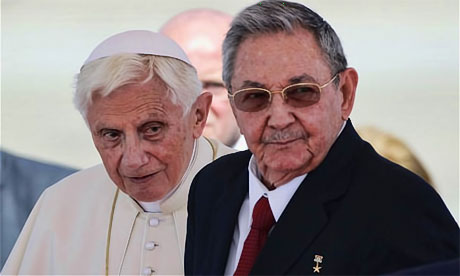When Pope Benedict XVI travelled to Cuba two weeks ago, he was acting within a long tradition.
Popes, after all, are not only spiritual leaders, they are representatives of the oldest continuous absolute monarchy in the world, which traces back to the Apostle Peter two millennia ago: The Holy See has been engaging in diplomacy far longer than any modern state has been in existence. On account of that history, and because of its spiritual authority, the Vatican has a rare sort of international clout, one that doesn’t depend on armies or a gross national product.
Pope Benedict XVI cannot be accused of shirking his responsibility to engage with world affairs.
But it is equally clear that he has not been inclined to use his diplomatic power to promote political freedom.
On his recent trip, Benedict could have advocated human rights, or protection for Cuban dissidents, many of whom are Catholic themselves. But on all these issues, he largely kept silent.
Indeed, when it comes to papal visits and speeches, this pope has focused his diplomacy on ensuring the Catholic Church’s growth, even when it requires keeping silent about flagrant abuses of human rights.
Continue reading: What Pope Benedict got wrong in Cuba
Image: The Telegraph
